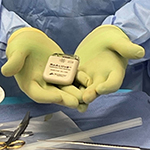Artificial Intelligence Could Be New Blueprint for Precision Drug Discovery
Researchers at University of California San Diego School of Medicine describe a new approach that uses machine learning to hunt for disease targets and then predicts whether a drug is likely to receive FDA approval.















